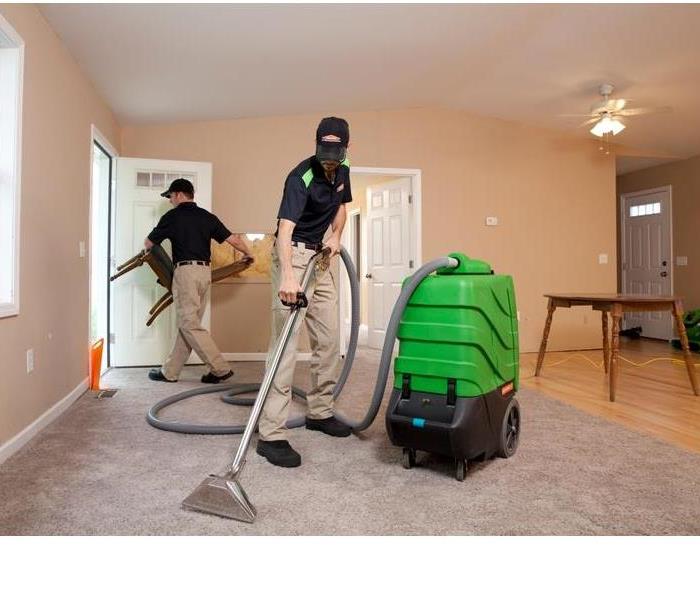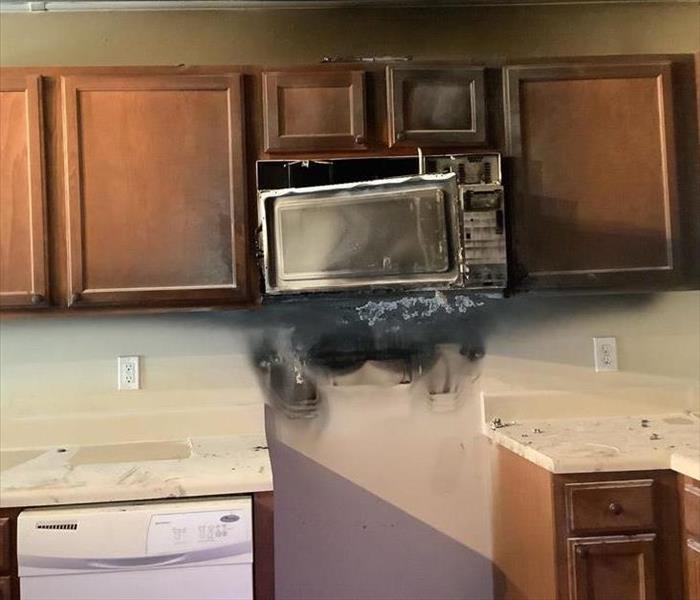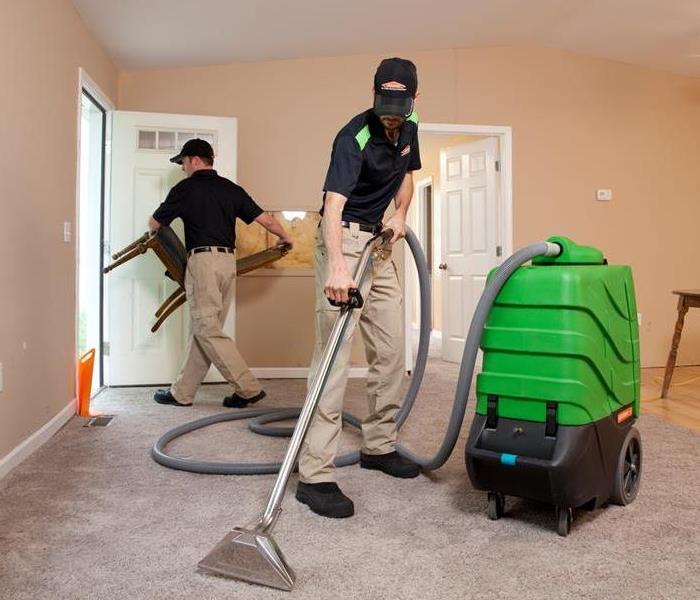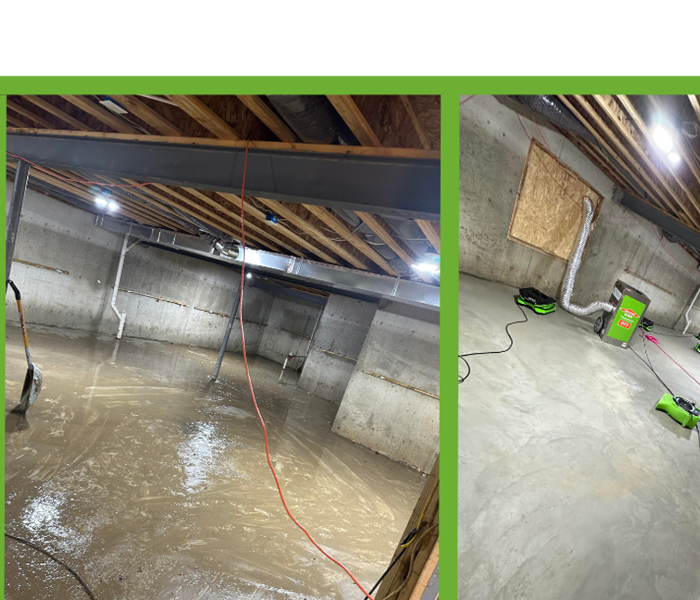Recent Posts
A Great Turnout at the First Responders Bowl: A Community Celebration
1/6/2025 (Permalink)
SERVPRO Team Harloe was proud to be part of the recent First Responders Bowl, a wonderful event that brought together local firefighters, police officers, their families, and our dedicated employees. The event not only celebrated the hard work and dedication of our first responders but also gave everyone a chance to connect and have fun.
The highlight of the day was the amazing BBQ feast, which drew a great turnout. Families, firefighters, and police officers enjoyed delicious food, and the sense of community was palpable. The weather was perfect for the outdoor bonfire, where everyone gathered to relax, share stories, and enjoy each other’s company.
As a company that is deeply rooted in supporting and helping our community, SERVPRO Team Harloe understands the importance of first responders. These heroes often face dangerous situations, and it was an honor to show our appreciation for their efforts. The event was a reminder of the strength of our local community and how important it is to come together in times of celebration and support.
Thank you to everyone who attended and contributed to making the First Responders Bowl a memorable experience. We look forward to more events like this in the future!
SERVPRO Team Harloe: Expert Pack-Out, Cleaning, and Storage Services
1/6/2025 (Permalink)
At SERVPRO Team Harloe, we understand how overwhelming it can be when your property is affected by damage. That's why our pack-out, cleaning, and storage services are designed to provide peace of mind during the restoration process.
When a disaster strikes, our team is ready to carefully pack up your belongings, ensuring that everything is handled with the utmost care. From furniture and electronics to documents and personal items, we efficiently and safely remove your possessions from the affected area to prevent further damage.
Once your items are packed out, we bring them to our warehouse, where our highly trained technicians thoroughly clean and restore each item. Using advanced cleaning techniques and equipment, we work hard to return your belongings to their pre-damage condition, whether it's deep-cleaning fabrics or sanitizing items impacted by water or smoke.
After the cleaning is complete, we securely store your items in our climate-controlled storage facility until your property is ready for restoration. Our team ensures that your belongings are kept safe and organized, so when it’s time to move back, everything is in perfect condition.
At SERVPRO Team Harloe, we're committed to delivering quality service and restoring peace of mind to our customers during difficult times.
Why Choose SERVPRO Team Harloe for Mitigation, Remediation, and Build Back?
1/6/2025 (Permalink)
When disaster strikes, choosing the right restoration company can make all the difference. SERVPRO Team Harloe is your trusted partner for comprehensive mitigation, remediation, and build-back services. Here’s why so many clients choose us to handle their restoration needs.
1. Fast Response and Expertise: Our team is available 24/7, ensuring that we arrive quickly to assess the damage and begin immediate mitigation. Whether it’s water, fire, or mold damage, our experienced technicians are highly trained to handle every aspect of restoration with precision.
2. Comprehensive Services: From the initial damage assessment and mitigation to the full remediation and rebuilding process, SERVPRO Team Harloe is with you every step of the way. We don’t just clean up the damage—we restore your home or business to its preloss condition, managing all aspects of reconstruction.
3. Advanced Technology: We use state-of-the-art equipment and industry-leading techniques to provide thorough and effective mitigation and remediation. Our tools allow us to detect hidden damage and thoroughly dry or clean affected areas.
4. Customer-Centered Approach: At SERVPRO Team Harloe, we pride ourselves on clear communication, reliability, and exceptional customer service. We work closely with you and your insurance company to ensure a smooth, hassle-free process.
Choose SERVPRO Team Harloe for your next restoration project, and trust us to bring your property back to life.
Space Heater Safety tips
12/6/2024 (Permalink)
Here are some important space heater fire safety tips to help keep your home and family safe this winter:
1. Keep Flammable Objects Away
- Keep space heaters at least 3 feet away from anything that can catch fire, including curtains, furniture, blankets, and papers.
2. Turn Off When Not in Use
- Never leave a space heater running unattended. Always turn it off when you leave the room or go to bed.
3. Use the Right Heater for the Room
- Ensure your space heater is rated for the size of the room you're heating. Avoid using a heater that is too powerful for a small space or too weak for a large room.
4. Place Heaters on a Flat, Stable Surface
- Always place space heaters on a flat, level surface. Avoid placing them on soft surfaces like carpets or beds, which can increase the risk of tipping.
5. Inspect Before Use
- Check your space heater's cord, plug, and wiring for any damage before use. Never use a heater with a frayed or exposed cord.
6. Use Only Approved Heaters
- Only use space heaters that have been tested and approved by safety standards, such as those from UL (Underwriters Laboratories).
7. Avoid Extension Cords
- Plug space heaters directly into the wall socket. Avoid using extension cords, as they can overheat and increase the risk of fire.
8. Keep Children and Pets Away
- Keep space heaters out of reach of children and pets to prevent burns or accidents from touching hot surfaces.
9. Check the Heating Area
- Make sure the area around the heater is clear of dust, dirt, and pet hair, as these can catch fire when heated.
10. Choose a Heater with Safety Features
- Look for space heaters with automatic shut-off features that turn the unit off if it tips over or overheats.
By following these space heater safety tips, you can enjoy the warmth and comfort of your space heater without compromising safety. Stay warm and safe this winter!
Steps to take when you find a water leak.
12/6/2024 (Permalink)
Finding a water leak in your home can be stressful, but taking quick action can help minimize damage. Here are some essential steps to take when you find a water leak:
1. Turn Off the Water Supply
- Locate your main water valve and shut it off immediately to stop the flow of water. This can prevent further damage while you assess the situation.
2. Turn Off Electrical Power (if necessary)
- If the leak is near electrical outlets, appliances, or wiring, turn off the electricity to prevent the risk of electrical shock or fire. If you're unsure, call an electrician.
3. Contain the Leak
- If possible, use towels, buckets, or containers to catch or divert the water away from important or sensitive areas (e.g., electrical outlets, valuable items).
4. Identify the Source of the Leak
- Try to locate where the leak is coming from. This could be a broken pipe, a leaky faucet, a roof leak, or an appliance malfunction. Knowing the source will help you take the next steps.
5. Assess the Damage
- Take note of the extent of the damage. Check surrounding walls, floors, and ceilings for signs of water damage. Take photos for insurance claims if necessary.
6. Call a Professional
- For significant leaks, or if you’re unable to locate the source, it’s best to call a plumber or SERVPRO Team Harloe. They can stop the leak, assess any structural damage, and help with cleanup and restoration.
7. Dry the Area
- Remove excess water from the affected area as quickly as possible using towels, a mop, or a wet/dry vacuum. This will help prevent mold and mildew from forming.
- Use fans and dehumidifiers to dry out the space. If necessary, remove carpets or upholstery that have absorbed water.
8. Check for Mold
- After the area is dry, inspect for any signs of mold or mildew. If you find mold, you may need to contact a mold remediation specialist to address the issue safely.
9. Notify Your Insurance Company
- Contact your insurance company to report the leak and any damage. Provide documentation, including photos and any repair estimates, to assist with your claim.
10. Prevent Future Leaks
- Once the leak is repaired, take preventive steps to avoid future leaks, such as regular plumbing inspections, cleaning gutters, and insulating pipes to avoid freezing.
By acting quickly and safely, you can reduce water damage and protect your home. If you're ever unsure about handling a water leak, it's always a good idea to call a professional for help!
Give SERVPRO Team Harloe a call today!
Storm Preparedness: Your Guide to Staying Safe Before, During, and After the Storm
9/23/2024 (Permalink)
 Storm damage can leave your home in ruins, but SERVPRO® is here to help with expert storm cleanup and restoration services.
Storm damage can leave your home in ruins, but SERVPRO® is here to help with expert storm cleanup and restoration services.
When it comes to storm preparedness, it’s all about planning ahead. Storms can strike quickly, leaving behind a trail of damage if you’re not ready. While you can’t control the weather, you can control how prepared you are. So, let’s dive into some practical steps to help keep you, your family, and your home safe when storms roll through.
Before the Storm: Preparation is Key
Start by staying informed. Keep an eye on weather updates from reliable sources and make sure your emergency kit is stocked with essentials like water, non-perishable food, flashlights, and first aid supplies. If you have time, secure outdoor furniture and any loose items that could become projectiles in high winds. Also, double-check that your home’s gutters and drainage systems are clear to prevent flooding.
During the Storm: Safety First
When the storm hits, stay indoors and avoid windows and doors. If you live in an area prone to flooding, move to higher ground and avoid walking or driving through floodwaters—it only takes six inches of fast-moving water to knock you down. Keep a battery-powered radio handy for real-time updates, and if the power goes out, don’t try to use generators indoors due to the risk of carbon monoxide poisoning.
After the Storm: The Road to Recovery
Once the storm has passed, the real work begins. Safety should be your first priority—avoid any downed power lines, and don’t enter any damaged buildings until they’ve been inspected by professionals. Flooding is a common issue after storms, and standing water can cause significant damage if left untreated. This is where calling in the pros can make all the difference. SERVPRO® has the expertise and equipment to assess storm damage, begin the drying process, and restore your property to its pre-storm condition. By acting quickly, you can minimize long-term damage and get back to normal faster.
Storms are unpredictable, but your response doesn’t have to be. With a little planning and the right help, you can weather the storm and come out stronger on the other side. Stay safe, and when in doubt, call SERVPRO®.
Restoring and Repairing your home cost effectively
12/18/2023 (Permalink)
 SERVPRO is here to help with all your restoration and repair needs after a flood
SERVPRO is here to help with all your restoration and repair needs after a flood
Restoring and repairing a home after flood damage requires a comprehensive approach to ensure efficiency and cost-effectiveness. Understanding the complete flood restoration process is crucial in engaging the right professionals for this daunting task. It encompasses various stages of repair and cleaning, all of which our team of qualified experts is equipped to handle. Recognizing the significance of professional assistance in returning homes and businesses to their preloss condition is paramount.
In addressing flood damage, prompt action is imperative, starting with containment and emergency services. These initial steps are crucial before mitigation or scoping of the job. Effective planning precedes the restoration process, but certain immediate actions cannot be delayed and need inclusion in the overall restoration plan. Our team employs efficient strategies, commencing with communication through our SERVPRO emergency line.
The gathering of information about the disaster is pivotal. Our professionals rely on data shared through our emergency line to prepare adequately. Thorough details enable us to mobilize the right personnel, equipment, and products from our warehouse. There are three primary ways we gather essential data for formulating a restoration plan:
- Emergency Phone Call: Sharing comprehensive information with our emergency line operators prepares our technicians for the situation awaiting them.
- Job Scoping: Our experienced project managers assess the flood-damaged property, determining necessary actions for restoration and documenting losses or additional measures needed.
- Customer Conversations: Leveraging the customer's insights helps prioritize actions during the restoration process.
Creating staging areas is an efficient approach our SERVPRO technicians utilize. These areas, set up in unaffected sections of the home close to the damaged areas, facilitate easy access to equipment and protective gear. This practice minimizes trips in and out of the house, ensuring efficiency, convenience, preventing cross-contamination, and proximity to drying/work zones.
Efficient strategies for water extraction are vital due to the potential damage caused by standing water. Removal of standing water is crucial to focus on drying, cleaning, and other recovery actions. Various methods are employed:
- Trash Pumps: These gas-powered pumps effectively remove flood water, including smaller solids and debris.
- Wet Vacuums: Versatile extractors with different attachments suitable for removing water below two inches in depth.
- Subcontractors: In cases of severe contamination, subcontractors may be engaged for handling blackwater incidents.
Numerous initial tasks must be addressed promptly after a flood, bridging the gap between potential contamination and removing bulk materials. Our dedicated team of water restoration technicians and cleaning specialists is committed to restoring the property to its original state seamlessly, ensuring it's "Like it never even happened."
Grease Fire and The Holidays
11/2/2023 (Permalink)
 Grease fire aftermath, 2022
Grease fire aftermath, 2022
These are important safety tips for anyone cooking with hot oil, especially during the holiday season when deep frying is common. Here's a summary of those tips for a safe and enjoyable cooking experience:
When Cooking with Hot Oil:
Stay in the Kitchen: Never leave the stove or deep fryer unattended while it's in use. Most grease fires occur when people step away from the kitchen.
Heat the Oil Gradually: Slowly heat the oil to the desired temperature to avoid overheating, which can lead to fires.
Monitor the Temperature: If you suspect the oil is getting too hot, turn off the burner to prevent it from igniting.
Careful Placement: Gently place food into the hot grease to prevent splattering and burns.
Fire Safety: If a grease fire starts, immediately use a fire-smothering method. Options include using a pan lid, cookie sheet, cat litter, a fire extinguisher, flour, or a wet cloth to extinguish the flames.
Avoid These Actions:
Don't Carry the Pan Outside: Moving a burning pan outside can be dangerous and may cause severe injuries. It's best to handle the fire right where it started.
Avoid Panicking: Panicking can lead to poor decisions, like splashing the grease or knocking over the pan. Stay calm and act quickly but with caution.
Don't Use Water or Dry Cloths: Water should never be used to extinguish a grease fire, as it can cause the fire to spread. Dry cloths are also not effective. Use the recommended fire-smothering methods mentioned earlier.
Special Consideration for Turkey Fryers:
When using turkey fryers, it's essential to follow specific safety precautions:
Outdoor Use: Always use turkey fryers outdoors, away from any structures or flammable materials. This reduces the risk of a fire spreading to your home.
Maintain Safe Distances: Ensure the fryer is placed on a stable, level surface and at a safe distance from any walls or structures.
Thaw the Turkey: Make sure the turkey is fully thawed and dried before lowering it into the hot oil. Ice or water on the bird can cause violent reactions when submerged in hot oil.
Use Appropriate Safety Gear: Wear appropriate safety gear, like oven mitts and safety goggles, when operating a turkey fryer.
By following these guidelines, you can reduce the risk of accidents and enjoy a safe and delicious holiday cooking experience. Remember to prioritize safety and be prepared for emergencies by keeping a fire extinguisher on hand. If a fire does occur, Call 911, and then call SERVPRO, we are hear to help.
Revitalize Your Workspace with Professional Carpet Cleaning Services by SERVPRO
11/2/2023 (Permalink)
 Carpet cleaning
Carpet cleaning
In the fast-paced world of commercial business, maintaining a clean and inviting workspace is crucial. Among the many facets of office maintenance, carpet cleanliness often takes center stage. A clean carpet not only enhances the aesthetics of your office but also contributes to a healthier and more productive work environment. That's where SERVPRO, a trusted name in the restoration and cleaning industry, can make a significant difference.
Why Carpet Cleaning Matters
Carpeting is a common choice for commercial spaces due to its durability and sound-absorbing properties. However, it's also a magnet for dirt, dust, allergens, and stains. Over time, neglected carpets can accumulate these contaminants, resulting in reduced air quality, unpleasant odors, and a negative first impression for clients and employees. This is where professional carpet cleaning becomes essential.
SERVPRO: Your Trusted Partner
SERVPRO, with its decades of experience in cleaning and restoration, offers comprehensive commercial carpet cleaning services that can transform your workspace. Here's why SERVPRO stands out:
1. Cutting-Edge Equipment and Techniques: SERVPRO uses state-of-the-art equipment and industry-best practices for carpet cleaning. Their highly trained technicians are well-versed in the latest techniques to provide the most effective solutions.
2. Customized Cleaning Plans: Every commercial space is unique. SERVPRO tailors their services to meet your specific needs. Whether you have high-traffic areas, stubborn stains, or just need regular maintenance, they can create a plan that suits your business.
3. Healtheir Work Environment: Clean carpets mean healthier air quality. SERVPRO's deep cleaning removes allergens and pollutants, contributing to a healthier workspace and potentially reducing employee sick days.
4. Enhanced Aesthetics: Clean carpets create a professional and welcoming atmosphere for your clients and employees. A tidy workplace can boost employee morale and leave a lasting positive impression on visitors.
5. Prolonged Carpet Lifespan: Regular professional cleaning not only keeps your carpets looking great but also extends their lifespan. This can save your business money in the long run.
6. Emergency Services: In the event of unexpected accidents, such as water damage or flooding, SERVPRO offers emergency carpet cleaning and restoration services to minimize downtime and protect your assets.
The SERVPRO Process
When you choose SERVPRO for your commercial carpet cleaning needs, you can expect a meticulous and thorough process:
1. Inspection: Technicians begin by inspecting your carpets to assess their condition, identify stains, and determine the best cleaning method.
2. Pre-Treatment: They pre-treat stains and high-traffic areas to ensure effective removal of dirt and grime.
3. Cleaning: Using their advanced equipment, SERVPRO technicians perform a deep cleaning, removing embedded dirt, allergens, and stains.
4. Drying: After cleaning, they ensure your carpets are properly dried, preventing mold and mildew growth.
5. Post-Cleaning Inspection: A final inspection guarantees that your carpets meet SERVPRO's high standards for cleanliness and appearance.
Experience the SERVPRO Difference
In the world of commercial carpet cleaning, SERVPRO is a name synonymous with excellence. Their commitment to quality, attention to detail, and industry-leading techniques can help you maintain a clean, inviting, and healthy workspace. With SERVPRO by your side, you can confidently focus on what matters most – your business success – while they take care of the cleanliness and aesthetics of your office.
Don't let dirty carpets hold back your business's potential. Contact SERVPRO today and discover how their professional carpet cleaning services can transform your commercial space.
Michigan 2023: fast flooding requires fast action.
9/25/2023 (Permalink)
the recent flash flooding that occurred in Michigan left a lot of local resident in peril. In news reports they say some businesses were left as "Islands," and homes were virtually underwater. With all of the local company's overloaded with calls, we send our team of water mitigation specialists to help. After 3 weeks of working day and night our team helped many people get their homes cleaned up and ready for reconstruction. Some of the work done, included sewage backups in their basements, main floor flooding, or water coming in from the outside.
After leaving their families, driving across the country (South Carolina to Michigan) and then immediately getting to work to exact and dry, Our team has returned safely home.



 24/7 Emergency Service
24/7 Emergency Service




